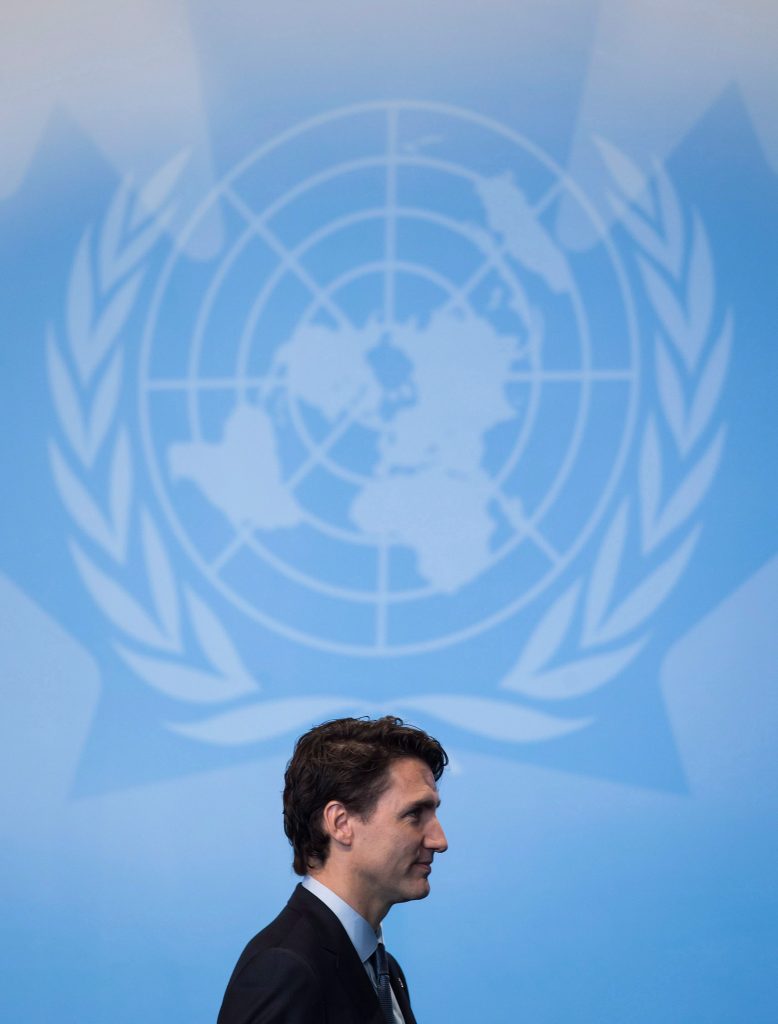Canada News
South Korean envoy expects ‘ambitious’ peacekeeping pledges from Canada

OTTAWA — South Korea’s ambassador to Canada is expecting the federal government to make some “ambitious” promises when his country hosts a major peacekeeping summit next week.
Ambassador Keung Ryong Chang says that expectation is based on Canada’s historic support for the United Nations and peacekeeping, and not any specific knowledge about Ottawa’s plans.
“I expect that Canada will present ambitious pledges,” Chang said in an interview Friday. “Canada and Korea share the same values of peace, stability and security on the global level.”
Canada will be one of dozens of nations participating in the two-day summit starting next Tuesday. While Defence Minister Anita Anand was supposed to attend in person, the meeting has since moved online due to the emergence of the Omicron variant of COVID-19.
Chang described the summit as an opportunity for participating nations to discuss new emerging issues in peacekeeping, including a greater focus on using technology on UN missions and addressing some of the challenges posed by the pandemic.
Yet much of the focus during the international meeting will revolve around what troops and equipment are offered by individual countries to the UN, which is struggling to fill a number of gaps and shortfalls on different missions around the world.
The United States has asked Canada to make good on its promise to provide a 200-soldier quick reaction force to the UN, which Prime Minister Justin Trudeau first committed when his government hosted a similar peacekeeping summit in Vancouver in November 2017.
Washington has also asked that Canada come to the summit with plans to pledge drones and medical units for peacekeeping missions.
The U.S. made the requests in a letter sent to Global Affairs Canada last month, in which it asked that the government notify the UN and South Korea of its planned pledges by Nov. 12. A copy of the letter was obtained by The Canadian Press.
Chang could not say whether Canada has informed his government of its planned commitments for the meeting, saying such information would likely have been sent directly to South Korean officials in Seoul.
But Canadian and UN officials, who spoke on condition of anonymity because they were not authorized to comment publicly, said Canada did not meet that deadline.
Asked in an interview last week about the U.S. request to provide a quick-reaction force, drones and medical units, and whether the military can provide such assets given the many other missions currently underway, chief of the defence staff Gen. Wayne Eyre indicated government discussions were still ongoing.
“It’s a government decision as to if we would commit to that,” he said, adding: “As we take a look around the world, we have to be very targeted with our investments because there’s no shortage of engagement opportunities, no shortage of deployment opportunities.”
Anand’s office confirmed Friday that the minister will attend the summit, but declined to provide further comment.
“Canada’s pledges will be made at the summit,” spokesman Daniel Minden said in an email.
Chang said his country decided to host this year’s peacekeeping summit, which is the first in two years, because it has been a direct beneficiary of the United Nations’ efforts to maintain peace and security since the start of the Korean War more than 70 years ago.
Around 26,000 Canadians fought in the three-year conflict that started on June 25, 1950 when Communist North Korean forces supported by China and the Soviet Union invaded the U.S.-backed south; 516 Canadians died during the war, which ended in a military standoff.
The UN continues to maintain an armed force in the country today that is responsible for supervising the demilitarized zone between North and South Korea. Eyre served as deputy commander of that force for a year starting in July 2018.
“So we believe that peacekeeping is effective in curbing violence, discouraging gender-based violence and reducing civilian casualties in conflict areas,” Chang said, adding: “It’s very important for countries to provide pledges to reaffirm their support toward peacekeeping.”
The Liberal government has been criticized for failing to match past promises and rhetoric supporting the UN with commitment and action.
While Ottawa did deploy helicopters to Mali for a year and has provided a transport plane to fly occasional support missions out of Uganda, the quick reaction force has yet to materialize while Canada’s total contribution to the UN has sunk to historic lows.
Canada had 57 soldiers and police officers on peacekeeping missions at the end of September, according to the UN. While that was up from the record low of 34 in August 2020, it was still less than half the number deployed when the Liberals took power in 2015.
This report by The Canadian Press was first published Dec. 3, 2021.
Lee Berthiaume, The Canadian Press





















